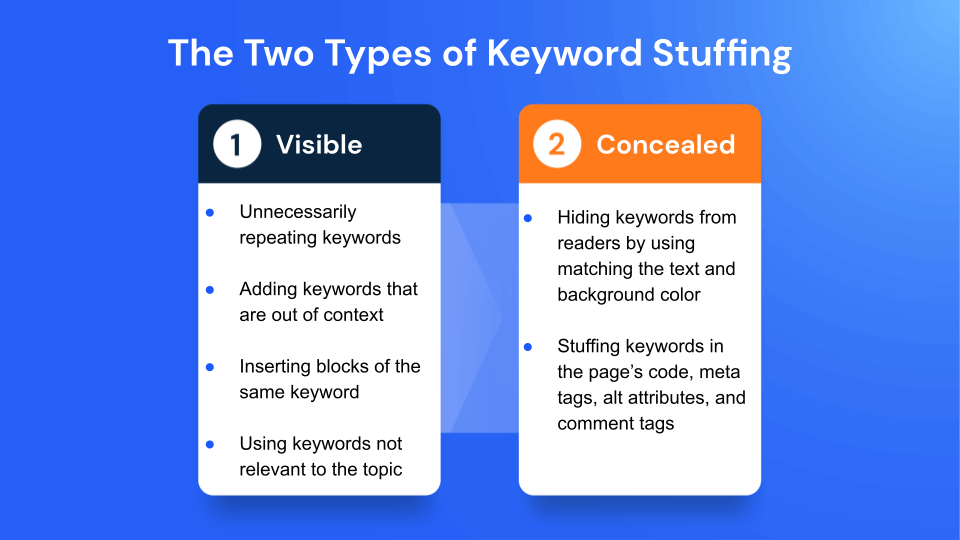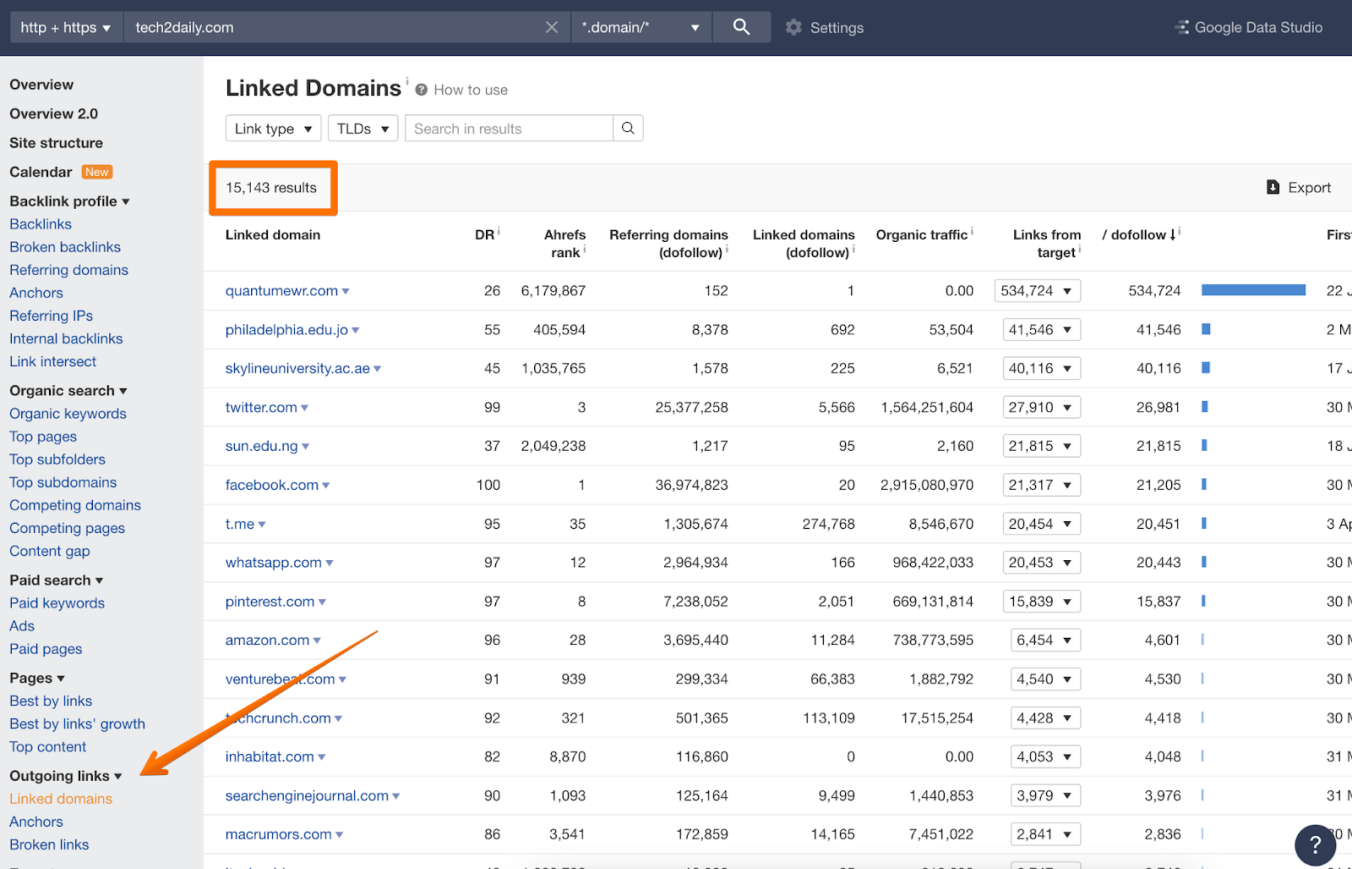The blog delves into the fundamental differences between these two approaches to search engine optimization (SEO), assisting businesses in making informed decisions based on their goals and values. It says that Black Hat SEO is using sneaky and usually wrong methods to trick search engines into giving you better results quickly. These methods include keyword stuffing, cloaking, link farming, and hidden text. White Hat SEO, on the other hand, focuses on doing things the right way, like doing thorough keyword research, writing high-quality content, building organic links, and putting user experience first in order to achieve long-term success. When businesses use Black Hat SEO, they run the risk of getting fined and losing credibility. On the other hand, White Hat SEO helps build trust, credibility, and morality, which is good for businesses that want to keep their online presence and reputation.
In the ever-evolving digital marketing landscape, SEO (Search Engine Optimization) remains a pivotal tool for businesses seeking online visibility. However, the approach to SEO can be categorized into two distinct realms: Black Hat and White Hat. Each strategy carries its own set of tactics, risks, and rewards, leaving businesses with a crucial decision to make. So, which SEO strategy is right for your business? In this blog, we'll explore the fundamental differences between Black Hat and White Hat SEO, the implications of each, and help you make an informed choice that aligns with your goals and values.
Table of Contents |

What is Black Hat SEO?
Black Hat SEO can be likened to the shadowy side of the digital realm, where aggressive and often unethical tactics are employed to manipulate search engine rankings. This approach prioritizes quick results over long-term sustainability. Some common Black Hat techniques include
Keyword Stuffing

This Black Hat technique involves overloading web content with an excessive number of keywords or key phrases to manipulate search engine rankings. While keywords are essential for SEO, keyword stuffing creates an unnatural and unpleasant reading experience for users. Search engines penalize websites that engage in this practice by lowering their rankings or removing them from search results. For long-term SEO success, it's crucial to focus on providing valuable content that incorporates keywords naturally and serves the needs of your target audience.
Cloaking
Cloaking is a deceptive practice where a website presents different content to search engines than what human visitors see. The intent is to trick search algorithms into ranking the website higher based on the content visible to search crawlers, even if it's irrelevant or of low quality. Cloaking is a clear violation of search engine guidelines, and when discovered, it can lead to severe penalties, including de-indexing or ranking demotion.
Link Farming

Link farming is the creation of artificial networks of low-quality websites or web pages to build backlinks. These backlinks are often irrelevant and do not add value to the user. While backlinks are a critical component of SEO, link farming strategies aim to manipulate search rankings by artificially inflating a website's link profile. Search engines have algorithms to detect and penalize such tactics, making it a high-risk strategy for long-term SEO efforts.
Hidden Text
This practice involves embedding text within a webpage that is invisible to human users, typically using the same text color as the background. The hidden text is intended to be visible only to search engine crawlers, which can potentially manipulate rankings. This tactic is not only unethical but also easily detected by search engines. Websites employing hidden text may face penalties, including a significant drop in rankings or removal from search results.
While Black Hat strategies may provide short-term gains in search rankings, they ultimately pose substantial risks to a website's online presence. Search engines continuously refine their algorithms to identify and penalize such unethical tactics.
What is White Hat SEO?
Keyword Research
White Hat SEO begins with comprehensive keyword research. This process involves identifying the keywords and key phrases relevant to your business, products, or services that your target audience is likely to search for. Keyword research tools and analytics can help you determine the most valuable keywords to target.
Quality Content
One of the cornerstones of White Hat SEO is creating high-quality, valuable, and user-friendly content. This content should be well-structured, informative, and engaging. It satisfies your audience's needs and aligns with search engine algorithms that aim to deliver relevant results to users.
On-Page SEO
On-page SEO focuses on optimizing individual web pages to enhance their visibility in search engine results. This includes elements like meta tags (title, description), headings (H1, H2, H3), and optimizing images for SEO. On-page optimization ensures that each page is easily understood by search engines and is well-organized for user navigation.
Link Building

Link building in White Hat SEO revolves around creating high-quality, organic backlinks from reputable sources within your industry or niche. The emphasis is on natural link acquisition through informative blog posts, guest posting on relevant websites, or earning mentions from authoritative sources. These backlinks enhance your website's authority and credibility in the eyes of search engines.
Content Marketing
White Hat SEO often integrates content marketing strategies. This involves creating and promoting valuable content, such as blog posts, infographics, videos, and more, to attract and engage your target audience. Content marketing supports SEO efforts and helps build a loyal following and brand authority.
Ethical Practices
White Hat SEO strictly adheres to ethical practices and guidelines set by search engines. It avoids tactics that attempt to manipulate search results and instead focuses on delivering the best user experience. Ethical practices build trust with both search engines and website visitors.
Long-Term Credibility
White Hat SEO is committed to establishing long-term credibility and trust with search engines. While results may take longer to materialize compared to Black Hat tactics, they are generally more sustainable and less vulnerable to search engine penalties or ranking fluctuations.
In summary, White Hat SEO is all about playing by the rules, creating valuable content, and focusing on user experience. It aims to build a strong online presence through ethical means, improving search engine rankings and fostering trust and credibility with both search engines and your audience. White Hat SEO is the recommended strategy for businesses looking to achieve lasting success in the digital landscape.
Read Also: All You Need to Know About Google Core Updates
Black hat and White hat SEO techniques
|
|
|
|
|
|
|
|
|
|
|
|
|
|
|
|
|
|
|
|
|
|
|
|
|
|
|
|
|
|
|
|
|
|
|
|
Black Hat vs White Hat SEO
Black Hat and White Hat represent two opposing approaches to search engine optimization, each with its tactics, goals, and ethical considerations. Here's a direct comparison:
|
|
|
|
|
|
|
|
|
|
|
|
|
|
|
|
|
|
|
|
|
|
|
|
|
|
|
|
1. Tactics:
Black Hat SEO: Utilizes aggressive and often unethical techniques to manipulate search engine rankings, including keyword stuffing, cloaking, link farming, and hidden text.
White Hat SEO: Adheres to ethical, search engine-approved practices like keyword research, quality content creation, on-page optimization, and organic link building.
2. Goals:
Black Hat SEO: Seeks quick, often short-term results in search rankings. Prioritizes immediate gains over long-term sustainability.
White Hat SEO: Aims for sustainable, long-term success by focusing on user experience, high-quality content, and ethical practices.
3. Risk of Penalties:
Black Hat SEO: High risk of search engine penalties, including ranking drops and removal from search results.
White Hat SEO: Low risk of penalties, as it aligns with search engine guidelines and ethical standards.
4. User Experience:
Black Hat SEO:Often leads to a poor user experience due to tactics prioritizing search engines over user needs.
White Hat SEO: Emphasizes a positive user experience by providing valuable, relevant content that meets user needs.
5. Credibility:
Black Hat SEO: Tends to erode trust and credibility with search engines and users, potentially damaging a website's reputation.
White Hat SEO: Builds trust and credibility with search engines and website visitors, fostering a positive online reputation.
6. Timeline:
Black Hat SEO: May yield quick but short-lived results, with the risk of rapid ranking fluctuations.
White Hat SEO: It takes time to produce results, but they are more sustainable and consistent over the long term.
In summary, Black Hat SEO involves high-risk, unethical tactics for quick gains but with potentially severe consequences. White Hat SEO, on the other hand, prioritizes ethical practices, user experience, and long-term credibility with a lower risk of penalties. Businesses looking to establish a lasting and reputable online presence should opt for White Hat SEO, while Black Hat SEO is generally discouraged due to its risks and unethical nature.
Read Also: Off-Page SEO: How to Do It & Why It Still Matters in 2024
Making the Right Choice
When deciding between Black Hat and White Hat SEO, consider your business's long-term objectives and ethical values. If you're seeking quick wins and are willing to take on high risks, Black Hat strategies might tempt you. However, be prepared to face potential consequences in the form of search engine penalties, loss of credibility, and diminished user trust.
On the other hand, White Hat SEO embodies a more patient, ethical, and sustainable approach. It aligns with building a reputable online presence that stands the test of time. While results may not be immediate, the rewards include improved search rankings, trust from your audience, and avoiding potential penalties.
Parting Note:
The choice between Black Hat and White Hat SEO is a decision that goes beyond immediate results. White Hat SEO is the preferred choice for businesses aiming for long-term success and maintaining a positive online reputation. Black Hat SEO may offer quick but risky results, leading to severe consequences, including loss of credibility and search engine penalties. The focus should always be on ethical, sustainable, and user-centric SEO practices.
You can steer your business toward lasting digital achievements and a prominent online presence by aligning your SEO strategy with your goals and ethical principles. Need a digital success for your brand, connect DO communications.
Frequently Asked Questions
Q1. Why is White Hat SEO Better than Black Hat SEO?
White Hat SEO is superior to Black Hat SEO for several reasons. The top three reasons are:
Sustainability:White Hat practices prioritize long-term success, while Black Hat techniques can lead to penalties and loss of rankings.
Credibility: White Hat SEO builds trust with search engines and users, enhancing your online reputation. Black Hat practices can erode trust and harm your brand's image.
Ethical Considerations: White Hat SEO aligns with ethical standards and guidelines, ensuring your business operates with integrity.
Q2. Which Hat is Good for SEO?
White Hat SEO is the recommended approach for achieving sustainable and ethical results. It follows best practices, focuses on the user experience, and complies with search engine guidelines.
Q3. Why Do Companies Use Black Hat SEO?
Companies might resort to Black Hat SEO for quick wins, as these tactics can provide short-term improvements in search rankings. However, they often do so at the risk of search engine penalties and damage to their online reputation.
Q4. Is Black Hat SEO Safe?
Black Hat SEO is not safe and carries substantial risks. Search engines like Google actively monitor and penalize websites employing unethical tactics. The penalties can result in significant drops in rankings or even removal from search results.
Q5. Does Black Hat SEO Focus on Human Audience?
Black Hat SEO primarily focuses on search engine algorithms, often neglecting the human audience's needs. While the goal is to manipulate rankings, it can lead to poor user experiences and irrelevant content. In contrast, White Hat SEO emphasizes creating content that satisfies the user's requirements and provides a positive online experience.


